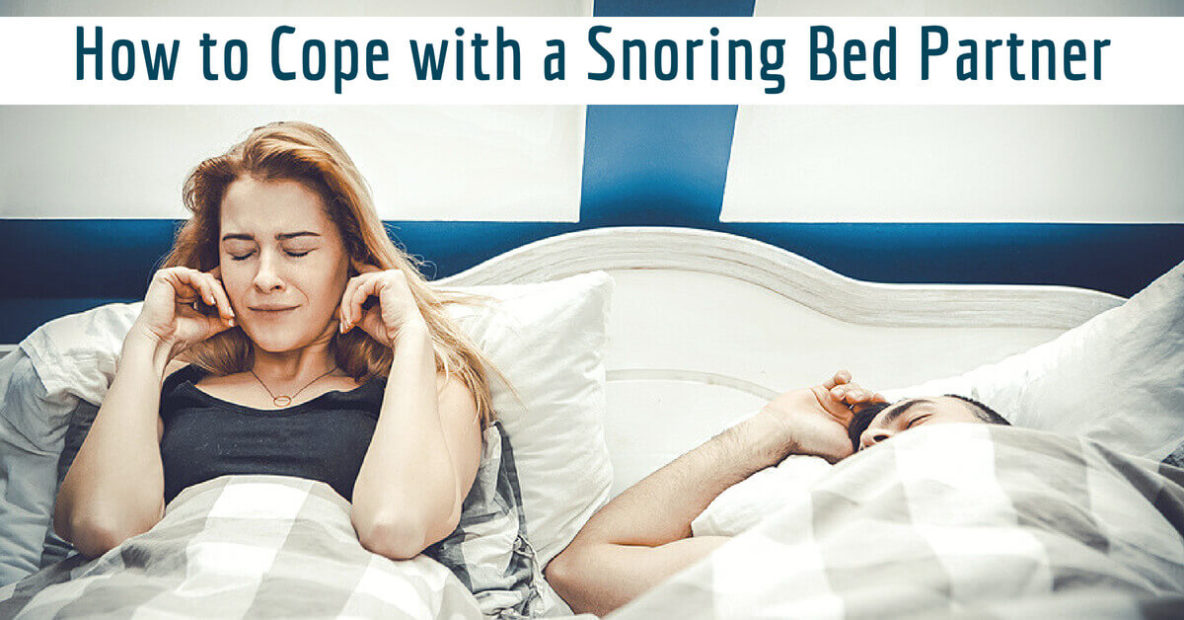How to cope with a snoring partner

- A Promising Paradigm Shift: New Research Challenges the CPAP-First Approach to OSA Treatment - September 5, 2023
- Understanding Sleep Meditation Techniques - July 30, 2021
- How Online Learning Has Affected Sleep for Students - July 13, 2021
Do you snore? You aren’t alone – there are millions of fellow snorers out there. Sound Sleep Medical professions can help with snoring, sleep apnea and other sleep disordered breathing. Call today and take advantage of our 25 years of experience!
Snore Facts
Twice as many men snore as woman so if you are a sleep deprived spouse, you, too aren’t alone. According to the British Snoring and Sleep Apnea Association, bed partners of snorers manage only three to five hours of sleep a night. They go to the doctor more than their snoring partners and, oddly enough, are more likely to become hard of hearing. Snorers have a heightened risk of heart attack, 34% higher than peaceful sleepers and snorers have a 67% higher chance of stroke than non-snorers. And, even though you may be the one lying awake listening to the snoring, your snoring partner is not having a very restful sleep, either.
Those who snore wake up with headaches, are irritable, drowsy during the day, have a lack of focus and experience decreased libido.
Components of the ‘snore’
Snoring is the sound made by vibrations of the soft palate and other tissues in mouth, nose and throat, it is caused by turbulence inside the airway when you inhale. The sound can be noisy, sometimes even between 50 and 100 decibels. About as loud as a pneumatic drill! And to put it into perspective, a jet engine on takeoff is 120 decibels and so are rock concerts!
And the causes….
Being overweight, elderly, in ill health can predispose a person to snore. Overeating, lack of exercise and alcohol consumption as well as smoking, a specific position during sleep, allergies and anatomical issues such as collapsing nostrils, a receding jaw line or a large neck can cause snoring issues.
What to do?
First, your partner needs to acknowledge they snore – they may even give you permission to wake them if they snore too loud for too long. If your partner doesn’t believe they snore, record them. And then discuss it in a non-confrontational setting. If it’s you that’s snoring, one of the first remedies suggested is lose weight and exercise. Perhaps you and your partner would both benefit from a brisk walk or some gym time. Stop or cut back as far as you can on smoking and reduce alcohol consumption. If you take sleeping pills, you are also predisposed to snore.
For some, breathing strips work. They help those who may have small or collapsing nostrils, but not those with palate and soft tissue collapse issues. You can try using a saline spray to clear nasal passages before bedtime. Some studies suggest putting an air filter in the bedroom to pull out dust and allergens. Some beds now even have snore technology and they raise the partner’s head slightly to help alleviate snoring. Some have found white noise machines and even the drone of a fan useful to combat snoring sounds.
Are you the partner of the snorer?
Prodding or pushing the snorer is usually an option that meets with resistance. Some studies suggest tickling the person’s neck hair or arm hair, so they reposition themselves because they think it’s an itch. There are also comfortable ear plugs – in fashionable colors even! There are earbuds to use with your iPhone and apps that play soothing night time sounds. Partners of snorers often resort to using the guest room. That doesn’t mean you don’t love them, it just means you don’t want to snap their head off the next day because you haven’t gotten any sleep. You can sleep away after they fall asleep and wake them in the morning with a kiss.
Is it sleep apnea?
Take the sleep assessment on the Sound Sleep Medical website. Rule that out before trying to treat your snoring issue. Sleep apnea is a condition that should be treated by a professional. There is a myriad of health issues associated with lack of sleep and snoring. Sound Sleep Medical can put you on the path to restful, refreshing sleep. There are serious consequences to not getting sleep apnea treated. Take the first step and take the sleep assessment on the Sound Sleep Medical website.
